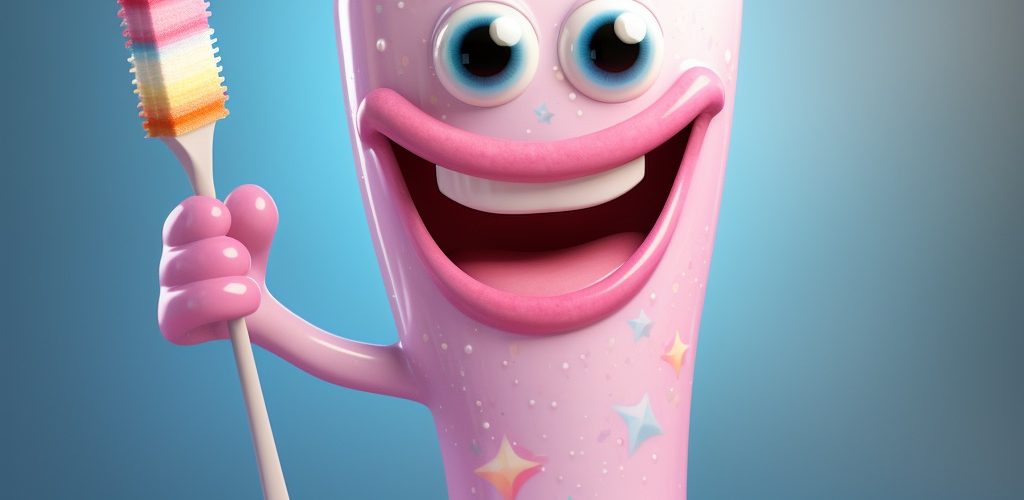
The mouth is the epicenter of so many things in the body and your mouth deserves to be clean and alkaline. I really don’t want to sound redundant and state a bunch of obvious facts but it is worth mentioning just a couple brief insights. Otherwise, if you are eating totally healthy, but failing to properly maintain the main entrance to your body, you could still be sabotaging your best efforts.
Some people might worry that eating a lot of fruit can be too much sugar which could be detrimental to the teeth themselves. It is true that if sugar is left in contact with tooth enamel it can cause decay. Also, some fruits which are acid fruits (which is to say not acid-forming once digested but acidic in their pre-digested form) like citrus can actually strip the enamel from a tooth if left exposed for an extended period of time. Also, somebody might eat chewy or sticky fruits like dates or dried fruits which can get stuck in between the teeth.
I would recommend flossing after as many meals as possible if not almost all of them. Also, after flossing, consider cleansing out the mouth with some kind of solution like a natural mouthwash. Some people recommend just swishing with water, or combining water with a smidge of natural toothpaste or tooth powder and swishing that around. This leaves the mouth feeling cleaned out and alkaline after a meal.
There are individuals who express concern of using any oral product which contains glycerin. The concept that is proposed is that the glycerin, being an oily, sticky substance, will stick to the teeth and coat them, creating a layer that is difficult to permeate between the teeth and the saliva. The teeth in your mouth are constantly in an interaction with the surrounding saliva, which is a special, almost magical liquid solution that contains many minerals, vitamins and compounds in it. The saliva helps to provide minerals to the teeth so the teeth can stay strong and healthy. But if there is a layer of glycerin between the two, it seems like there is a decent risk that this mineral transport between the saliva and tooth can be blocked or hindered, at least for a while — it can take a long time to get the sticky glycerin completely off of a tooth.
Defenders of glycerin will point to its qualities of being bacteriostatic, meaning that is stops the proliferation of bacteria, although its not necessarily strong enough to kill the bacteria. It seems the main role that glycerin plays in the toothpaste industry, though, is in its value as a preservative to toothpastes and mouthwashes, making them easier and cheaper to manufacture and giving these products a longer shelf life, increasing profitability in a very competitive marketplace. People also enjoy the smooth texture and sweet taste of glycerin and most people don’t really understand the nuances behind the scenes.
Personally, after educating myself in this area, I switched to using oral care products that do not contain glycerin. Certainly, it is a different experience from a textural point of view, but I have come around to enjoy using a tooth brushing powder just as much as using a paste. There are also toothpaste products that are out there as well which are glycerin-free.
It goes without saying that you should of course find oral hygiene products that do not contain toxic fillers or ingredients — especially including fluoride. It seems like consuming fluoride runs the risk of causing far more problems than the purported benefits you can get from it. There is extensive research supporting the harmful and damaging effects of fluoride and people should be aware of the risks involved.
Once you start paying more attention to alkalizing your mouth after meals by cleaning it out, you might find that you’ll feel not so good if you skip this routine. Go on an airplane without any tooth powder, toothpaste or mouthwash (whichever you prefer) and let your mouth just sit after eating a meal or drinking a juice and you’ll likely feel the mouth start to become acidic and perhaps sugars fermenting as your awareness grows, and without any assistance to re-alkalize your teeth and gums.
So that covers what you can do when you’re in a rush or on the go right after a meal. What about when it’s time to brush your teeth like before bed? I enjoy using an electric toothbrush as well. I also like to use a water pick filled with just plain, distilled water. This shoots out water in a focused stream which can be used to clean the areas in between the tooth and gum.
Now, this next technique is a little strange, but I also like to use a regular toothbrush with tooth powder, and brush all the gum areas, tongue, under the tongue, top of mouth, and where the mouth meets the throat. It sounds unusual but try it sometime and see if you don’t feel more stimulated and refreshed afterwards.
You can find the oral hygiene products I have discerned as being of good quality below. Personally, I don’t really use the toothpaste or the mouthwash. I prefer brushing with the powder, and putting a bit of powder in the mouth and swishing with water in lieu of mouthwash. However, everybody has different preferences and so I am including all of the options below, as well as any other new products I find and update on the website here:
RapidRegeneration.com/OralHygeine
Or individually here:
Tooth Powder:
RapidRegeneration.com/ToothPowder
Mouthwash
RapidRegeneration.com/MouthWash
Toothpaste
RapidRegeneration.com/Toothpaste
Toothbrush:
RapidRegeneration.com/Toothbrush
Floss:
RapidRegeneration.com/Floss
Water Pick
RapidRegeneration.com/WaterPick
I’ve talked to some people who are into natural health who were quite convinced that it was not necessary to visit a dentist once an individual is totally healthy. I really don’t know about all that. If you haven’t been to the dentist in a while, it may be worth investigating whether you could benefit from ‘scaling’ AKA deep periodontal cleaning below the gum line (something I had performed after a long absence from visiting the dentist). Personally, I feel I have been helped greatly by my naturopathic dentist. He has been very keen on natural and non-harmful methods of the craft, in the naturopathic tradition.
Everyone at the dental office was rather shocked to see that my gum levels regenerated over a period of several months and grew in robustly, something otherwise unobserved in their other patients. The power of this information contained in Rapid Regeneration is simply amazing.
Don’t neglect this basic but vitally important area. Look for a naturopathic provider in your area if possible and make sure they use only high-quality and non-toxic ingredients and dental methods. Switch your oral hygiene products to something natural that will truly care for you. And don’t let the sugars and acids from a healthy lifestyle involving eating lots of fruits take a toll on your mouth and teeth — you only get one set (not counting your baby teeth) after all.
Stay clean, and stay alkaline!
